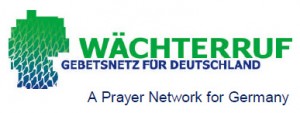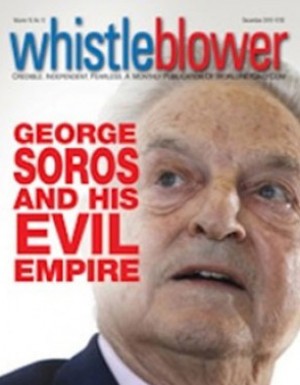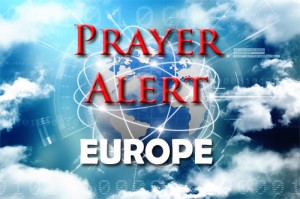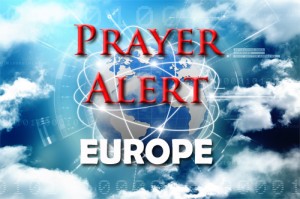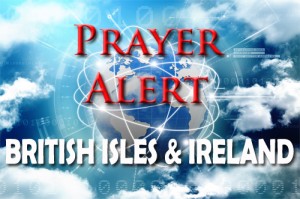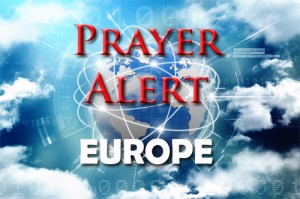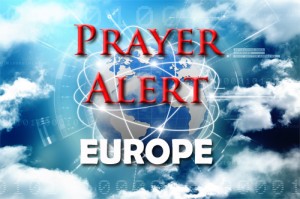Displaying items by tag: Europe
Jerusalem "Welcoming the King of Glory" Reports
The Welcoming the King of Glory conference in Jerusalem/Israel was a unique historic event.
Below is an article published by a Jewish believer from Israel. If you are interested to see some images and videos please visit my FB page at: https://www.facebook.com/ioan.peia.7
Welcoming the king of glory - ground-breaking sukkot conference
Joni Koski
Conference speaker Benjamin Berger, said that of all the many great conferences he has attended since his 1971 aliya, this year's Sukkot – Welcoming the King of Glory conference was the most significant.
For the first time it was initiated by local Messianic leaders - and led by Avi Mizrachi. Other speakers included EitanShishkoff, Asher Intrater, and Reuven Berger.
The conference was marked by both great local unity and the purposeful alignment of visiting nations to Israel.
Visitors came from the ends-of-the-earth and most notably the Pacific Islands, presenting themselves before some local leaders with gifts and colorful song and dance.
When one of the Pacific Islanders was offered Asher's new Alignment book for free, he was reminded that on his way to the conference God had told him to go back home and bring his plumb line. On receiving the book, he understood the prophetic meaning of the plumb line in its alignment function.
Poignantly, at the climax of the Solomon Island's presentation, one man with an existing heart condition tragically died. Their leader, Father Michael, had actually warned the group that this might happen in the tangible presence of God, and the conference was filled with the fear of the Lord.
For Revive Israel's Ariel Blumenthal, assistant MC, the highlight was when a group from Africa came and opened their hearts about the poverty and failure of Africa, tracing it back to Ham and the curse of his father Noah. In response, descendants of Noah's other sons, Shem and Japeth, got together and in faith reversed that curse of Ham.
The conference, unwelcome in Jerusalem's Kosher hotels, took place in a basketball arena in the largely Israel-friendly, Muslim town of Abu Ghosh, just outside Jerusalem – where Obed Edom looked after the Ark of the Covenant for three months (2 Sam 6:11). While the first rains fell after Israel's long, hot summer, the conference highlighted clear prophetic parallels between bringing the ark back to Jerusalem and preparing the way for Yeshua's return.
Shalom
Ioan Peia
 A second report from Martin and Norma Sarvis:
A second report from Martin and Norma Sarvis:
“My bow I set in the clouds, so that it may serveas a sign of the covenant between me and the earth.”(Genesis 9:13; See Torah section below)
1. “WELCOMING THE KING OF GLORY”
This season of the Fall Feasts in Israel, beginning with the Feast of Trumpets on September 20th and ending with Simchat Torah, at the close of Tabernacles on October 12th, saw what may well have been the largest inpouring of believing visitors from the Nations in Israel’s 69-year modern history. And there were many wonderful events within which the visitors could celebrate the feasts corporately—the All Nations Convocation in southern Jerusalem from Rosh Hashanah to Yom Kippur, the Feast of Tabernacles gathering sponsored by the Christian Embassy in Jerusalem, to name only two. SuccatHallel—the 24/7 house of prayer and praise of which we are a part, and other houses of prayer across the city saw an almost continuous stream of visitors come to worship the King of Kings in Jerusalem. So much blessing was released into the city through the presence of our visitors.
Last week we wrote of a very special and unusual event scheduled to take place during the last half of Succot, the “Welcoming the King of Glory” gathering. We are so grateful for the prayers which went up on its behalf from around the world. Thank you! This amazing event is unlike anything we have ever experienced in Israel. It began Tuesday night and was over early afternoon on Friday. We plan to share more in the future; we are still trying to process what took place. But something divine and historical has occurred.
As mentioned last week, at the initiative of our brothers in the islands and far reaches of the South Pacific, a number of Messianic and Believing Arab leaders in Israel took up the challenge to host a gathering in Israel inviting the Nations to join us in welcoming God’s glory back to His land and people. They have been praying regularly about this. We are reminded of Exodus 25, where the LORD invited the children of Israel, “every one whose heart moves him” to take part in preparing a place for Him to come and sho’ken—dwell among them, in their midst. This year, a number who heard the call and “whose hearts moved them” responded, and over the months a unity and focus and longing grew amongst them. Last Monday a delegation of Israelis and visitors travelled to the port of Jaffa, from which the Holy Spirit was released through Peter to Cornelius in Caesarea (Acts 10:23)—and from thence to the nations. There they did a number of prophetic acts, welcoming the return from the furthest reaches of the world to Israel and Jerusalem. The opening meeting the next evening took place in an Arab village west of Jerusalem called Abu Goash. For months we had been searching for a venue—but even after reserving places in a hotel, once it was discovered that Israeli Messianic Jews would be involved, the welcome was withdrawn from fear of repercussions from the Orthodox (There was literally “no place in the inn”).
Finally, the Lord in a remarkable way, opened a community arena in Abu Goash, just west of Jerusalem. In fact, the welcome came from the city fathers and the Mayor. Abu Goash is the only Arab town on the road from Tel Aviv to Jerusalem which refused to side with the Jordanians against the Israelis in the 1948 War for independence. In fact, the community has remained remarkably friendly to Jews to this day. It also lies in the vicinity of ancient KiryatYe’arim—the place where the Ark of the Covenant rested for several years after being returned from the Philistines, and before being brought by David into Jerusalem. Hundreds of believers from abroad descended there last Tuesday evening, many bringing gifts they had brought to give to the brothers and sisters in Jerusalem. The worship was in Hebrew and English, led by different Israeli worship leaders and groups. Except for special ethnic praise and worship songs released by the Islanders; there were 180 from New Caledonia, hundreds from Samoa, Island-Breeze from Hawaii…many others. Many entered into special “protocol” in bringing their gifts and worship to the King, and in honoring His “first born.” There were anointed messages from the Israelis, there was an all-afternoon Elav celebration by Israeli Jewish and Arab young people from Israel, Judea and Samaria and Jordan—and when they came together with the adults in the evening, the fire and intensity of praise and worship had an anointing over it which we have not experienced before. On Friday morning the gathering moved up to conclude in Jerusalem. Something new has come into place—God has visited us in a new way. Things will be different from here on---
Some Impressions from the Welcoming the King of Glory Gathering
By Norma
"They shall bring your sons in their arms; And your daughters shall be carried on their shoulders; Kings shall be your foster fathers, and their queens your nursing mothers; They shall bow down to you with their faces to the earth…Then you will know that I am YHVH."
Isaiah 49:22b-23
These verses are such a picture to me of the gathering of the nations with Israel last week. There are weekly, sometimes bi-weekly, conferences in Jerusalem. Those from the Nations invite those from their and other nations to gather there. Often, in the course of the meetings, an Israeli speaker may have been invited to speak; a few Israelis might attend. But this past week, Israel scheduled the gathering, and then invited the nations to join.
As we met and prayed with the leaders daily during these days, we observed such humility in the Israeli pastors; such holy love and respect among them.
One thousand people attended! Over six hundred from the Pacific Islands alone! This is a very large conference for Israel!
He hath remembered His mercy and His truth toward the house of Israel: all the ends of the earth have seen the salvation of our God." (Psalm 98:3)
Many of these from the "ends of the earth" had saved their money for years in order to come, but they did not come to speak or offer their ideas, nor to sight-see—they came only to honor Israel and her believing Remnant, and to bless her, and to be a part of welcoming the King of Glory to return.
I have attended many believing events here and in other nations. Most have been "speaker-driven". This was "honor-driven". The Nations came to honor the "elder brother"—Israel. And Israeli pastors took their place as the "first-born". We are a Body which is often insecure. Because of our faith, we often are not accepted as Jews by other Jews. We are sometimes even fearful that we might be expelled from the Land. Many here have waited and hoped for revival for years and years. But something shifted in these three days! Most who attended left saying: "I have no words to describe this, but it was historical!" "A bridge has been crossed." "A shift has happened!"
I sense in the coming six months we will see evidence that the King of Glory was indeed welcomed to Jerusalem. And that the "elder brother in Israel has indeed taken his rightful place there…and in doing so has opened the way for world-wide shifts to take place in the Body!
PLEASE PRAY:
- Praise and thanksgiving with us for the visitation of His Spirit in Abu Goash and Jerusalem this past week.
- For illumination in the Spirit into the NEW for the Body of Messiah—both in Israel and in the countries of those who came here. That God clarifies what He has done, and guide us in walking forward in it.
- That the Body in Israel will step by faith into the New Season which is upon us
- That the Gateway which has been opened will stay open—and that that for which it was opened will flood into the Land. We believe that a new measure of the Glory of the Lord has been released—which will prepare the way for much, much more!
- For signs and wonders, healings and miracles, and a new boldness in Love in sharing the Good News with Jews and Arabs in the Land.
- For a rear-guard of protection over all who attended the Gathering—especially those who took part in organizing and facilitating it.
- That the new degree of love and trust which is shining among the leaders will continue to warm and spread!
- For the Light of Jesus (Yasuah) shine in Abu Goash –that this place which welcomed His coming be blessed with a supernatural revelation of salvation and prosperity.
Martin and Norma Sarvis
Jerusalem
Watchman Rise and Build – August 2017 Herrnhut Gathering Report
Some IPC folk joined a second gathering at Herrnhut this year, with complementary themes to the May 2017 IPC gathering. Here is the report…
When the Earth Shook....
To the Global Watch family:
The Global Watch carries much of the spiritual DNA of Herrnhut Germany. As such, we are relaying a summary of a significant landmark gathering in Herrnhut, Germany August 11-18th, 2017 on the 290 year anniversary of the outpouring. People from 30+ nations (including villagers) gathered in Herrnhut, Germany to seek the Lord and "Re-dig" the well of revival that took place there, August 13, 1727. The Lord took us to this defining moment surely pointing to a "set time." The supernatural connections and events that led us to the convening were marked by "Only God could do" confirmations. The gathering was a distinct call of God, and those in attendance came as a response to that call at significant price and sacrifice. We are humbled by the numerous stories of God’s obvious hand and provision on how many heard from God and provided supernaturally for their journey. None came for any recompense, even speakers, and worship leaders. Most came with a stated desire to “Encounter” God. It has been our experience that when we ask for such experiences, often the “Encounter” comes in ways we do not expect or understand. Our sense from the beginning with the lightning strike on God’s acre (confirmed by some of the youth who were there when it happened), to the end, there was a divine message and “Power encounter” with God that ensued and sense of spiritual birth and shift in atmosphere. Signs followed.
Scripturally, the earth shook when Jesus died; the waters parted when Israel was delivered from Egypt, and when the priests stepped into the Jordan to take Israel into the promised land, to name a few. During creation God said, "Let there be lights in the firmament of the heavens to divide the day from the night; and let them be for signs and seasons, and for days and years." Suffice it to say, signs can emphasize "set times" of the Lord. In set times, such as in Abraham's time, the promises of God come true, Genesis 17:21. They are times when God is emphasizing His purpose and need for focus, perhaps a correction of course (Habakkuk 2:1). It is not "super spiritualization," but rather an apprehending the times of the Lord, to be noted and to draw our attention to Him, the Lord of Hosts. Not to underestimate, but rather give focus, the acronym “PRICE" has come to mind describing the experience at “Watchmen Rise and Build” week in Herrnhut. We experienced the following, each in our distinctive way:
P- Power Encounter with God
R- Re-setting and re-aligning us with our
I- Identity in Christ individually and corporately
C- Commissioning and
E- Empowering us forward
In very "Brief" review, a few hours before the meeting in Herrnhut started, the area encountered a lightning and thunder strike that "Shook" the earth. The testimony of the lightning strike that "Shook the earth" hit "God's Acre" has come through young adults on sight at the Watch tower when it happened. Many of the residents in Herrnhut and those of us there were suddenly riveted to attention. Residents of Herrnhut said they have never witnessed anything like it. That was the beginning of the Lord of Hosts taking command of a meeting that only time will tell of its significance. Suffice it to say; the "Summit" was at the very least provoking, if not life changing for many of those in attendance. Why? Because the Lord of Hosts met us.
Getting serious with God, Tuesday evening, August 15th a travail broke out that led many into the wee hours of the morning weeping in surges across the room. The meeting was closed to allow God to "deal" with each one of us individually as deep repentance took over the convening. The sense of spiritual birth was real. This spiritual nature of the travail was confirmed when reports reached us of similar manifestations happening at the same time on a University campus in Egypt and in two prayer groups in California. That night a massive thunderstorm hit Europe, shutting down many of Europe's airports.
In very "Brief" review, a few hours before the meeting in Herrnhut started, the area encountered a lightning and thunder strike that "Shook" the earth. The testimony of the lightning strike that "Shook the earth" hit "God's Acre" has come through young adults on sight at the Watch tower when it happened. Many of the residents in Herrnhut and those of us there were suddenly riveted to attention. Residents of Herrnhut said they have never witnessed anything like it. That was the beginning of the Lord of Hosts taking command of a meeting that only time will tell of its significance. Suffice it to say; the "Summit" was at the very least provoking, if not life changing for many of those in attendance. Why? Because the Lord of Hosts met us.
Getting serious with God, Tuesday evening, August 15th a travail broke out that led many into the wee hours of the morning weeping in surges across the room. The meeting was closed to allow God to "deal" with each one of us individually as deep repentance took over the convening. The sense of spiritual birth was real. This spiritual nature of the travail was confirmed when reports reached us of similar manifestations happening at the same time on a University campus in Egypt and in two prayer groups in California. That night a massive thunderstorm hit Europe, shutting down many of Europe's airports.
Key concepts and ‘take home’ messages from Herrnhut:
- Revival begins with us; many commented on a new desire and call to prayer and intimacy with God. Psalm 34:18
- God is retrieving seeds, past vision, purpose, plans that have fallen to the ground and have died to now raise them up. John 12:24; Isaiah 58:12
- Watchmen are key to the formation and release of the government of God and peace in our communities and cities. 2 Kings 11; Isaiah 9:7
- Not only is ongoing corporate prayer and informed intercession important, but the infrastructure of relationship is vital to a sustained move of God and transformation.
- Gender and generational integration is integral to the formation and sustenance of communities of committed prayer, i.e. "Watches." Malachi 4:6
- Small groups meeting in homes, or houses of prayer are included and should not be intimidated in this grass roots call. They are vital parts of the building necessary to bridge our cities/states/nations.
- The harvest time includes re-alignment of personal and corporate identity. Part of that alignment will include the church coming into its fullness of the understanding of Ekklesia. Watchmen will be key in facilitating that shift as they align with their God-given identity and call. Habakkuk 2:1-3; Isaiah 62:6-7; Romans 11:25
- Commitment to core values forms solid foundations for healthy relationships, bred in a culture of honor, and continued growth and expansion.
Key Scriptures:
John 12:24 "Most assuredly, I say to you, unless a grain of wheat falls into the ground and dies, it remains alone; but if it dies, it produces much grain."
John 15:1-15
Isaiah 58:12 "Those from among you shall build the old waste places; You shall raise up the foundations of many generations; and you shall be called the Repairer of the Breach, and Restorer of Streets to Dwell in."
Isaiah 54
Psalm 46
Isaiah 9:7
2 Kings 11
INVITE GOING FORWARD: Whatever your take on the convening, understanding the role and construct of the “Watch” and being “Watchmen” in repairing the breaches, and restorers of the understanding of Ekklesia are powerful transformational concepts. It was a message that shook the earth, and the heavens declared its impact and import. Now the commission is to go forward. It's time to carry the seed of Herrnhut forward into the nations and nurture it to fruition.
Spirit of the Moravians Mobilization Video (IPC)
Funds will be utilized to produce a 7-8 minute compelling mobilization video that will focus on aspects of the following three directions that came out of the Herrnhut consultation. It will point the viewers to how they can get closely connected and practically involved in the fulfilment of His Great Commission and the transformation of our world:
1) Reaching the unreached with the Gospel, stirring the Church to unity, linking prayer and mission for finishing the task, adoption of every unengaged unreached people group in the coming 5-10 years (IPC is taking part in "Finishing the Task" event in early December with hundreds from mission agencies attending and expect to present the video there.)
2) Raising up the next generation of youth and children to find their unique missions in life and impact generations to come for Christ and His purposes. In the coming decade, we need to see children and youth prayer movements develop, be connected, and strengthened in every nation on earth- they are probably going in one-third of the nations now. The IPC-related Children in Prayer movement and UPRISING youth movements are helping to extend the vision currently. There are half dozen national youth assemblies in planning for the coming year from Mongolia to Bolivia, Brazil to South Africa, Europe, and Canada culminating with the Global Youth Prayer Uprising in Indonesia (Oct 2018). We would like to show the video at each assembly to challenge the youth and children to pray and follow His call to reach the unreached peoples and serve their generation.
3) Transformational prayer for breakthroughs in the socio-political realms (Global Gates, Seven Mountains, regional summits, national initiatives, wars and human suffering, etc.)
Please be in prayer specifically for:
- Holy Spirit inspiration on best way to depict historical Moravian story (actor re-enactments vs art/graphics)
- Acquisition of footage of children and youth praying from around the world
- Anointed, focused selection and scripting as we review 25+ hours of Herrnhut interview footage
- Timely finish of Whatcom Story 2 production.
- Covering over the entire Lienau family:
Michael & Shari/Camano Island with 4 teens, Tatsi, Corina, Esther and Joshua
Jacob, Joseph, Janey/Kona, HI
Anna, husband Ben, daughter Selah, baby due 12/2, /Pasadena, CA
Bibi, fiance Joseph, sons Link, Jack (salvation!) /Portland, OR
Film overview:
Building on the inspiration of the Moravians' experience and the recent Herrnhut prayer and mission leaders consultation, the film will take viewers in these directions and on the journey with us in the international prayer and mission movement towards its fulfillment in Matthew 24:14. It will help shift the paradigm of the average believer's materialistic, even fatalistic worldview to understand and act upon the Book of Acts model and culture of engagement with the Lord in prayer (Acts 1:14), leading to revival and breakthroughs in mission that originally "turned the world upside down" and can do so again.
This project is a collaboration of (IPC) International Prayer Council and LifeNet Media Resources, whose directors produced the highly effective short video "The Whatcom Story" for Light of the World Prayer Center, which has had a significant impact in various US cities and states and internationally as it conveys the vision for the "One Church, One Day" initiative.
There are key distribution opportunities for this film to be featured at major conferences, on websites and potentially broadcast internationally. We believe this film project will be powerfully used of the Holy Spirit. It will be an engine for the ongoing linking of the prayer and mission movements and a much used resource for the fulfillment of His Great Commission. We also hope to see it get translated and used widely around the world, especially to fire up the younger generation to the unique missions the Lord has for them.
To complete production and post-production of this mobilization video project, LifeNet Media requires $20,000.
Strategy and Project Plan
Background
Two months ago in May, 120 prayer and missions leaders from around the world came together in Herrnhut, Germany. These courageous, faithful men and women were summoned to pray, discuss, and re-focus current strategies to reach the still unreached peoples of our day unto fulfillment of Christ’s Great Commission.
This un-precedented consultation was located at the site of the historic Moravian Church, where, in the early 1700’s, Count Zinzendorf led a small band of refugees in a 100-year prayer meeting that would launch one of the greatest missionary movements since the book of Acts. Sandwiched between two of the most significance places in European Church history, lies Herrnhut, Germany. Wittenberg is to the west, commemorating the 500 year anniversary of the Reformation, and an equal distance to the east is Prague, where Jan Huss was martyred.
Our team at LifeNet Media was invited to document this unique gathering, and capture one-on-one interviews with prayer and mission leaders from around the world, including Dick Eastman (Every Home for Christ), Paul Eschelman, (CRU), Leslie Keegel, (Foursquare Int’l), and many others more obscure and hidden in mission exploits and territories. We filmed thrilling stories of Gospel advancement in the nations, and believe these testimonies are unto “fueling the prayers of the saints”.
In our media proposal, four elements combine to communicate a timely message to the modern Church.
- The historic spiritual backdrop of this recent meeting,
- the passionate unity of believers displayed,
- the strategic planning of the consultation, and
- powerful interviews testifying of the link between prayer and reaching the lost.
These components have inspired the making of this short, focused, video-story-message that will be used to multiply vision for “completing the task”.
Key Viewing and Distribution Opportunities:
There is an expressed need for this project to be completed in a timely way in order to meet key viewing and distribution opportunities at upcoming major conferences, on websites and potentially broadcast internationally. This will be coordinated closely with John Robb at IPC and through his many relationships and networks.
IPC is taking part in "Finishing the Task" event in early December 2017 with hundreds from mission agencies attending and we expect to present, if not premier this video there.
There are a half-dozen national youth assemblies in planning for the coming year from Mongolia to Bolivia, Brazil to South Africa, Europe, and Canada, culminating with the Global Youth Prayer Uprising in Indonesia (Oct 2018).
We believe this film project will be powerfully used of the Holy Spirit. It will be an engine for the ongoing linking of the prayer and mission movements and a much-used resource for the fulfillment of His Great Commission. We also hope to see it get translated and used widely around the world, especially to fire up the younger generation to the unique missions the Lord has for them.
Timeline
July 2017 - Funding, research, outlining, scripting, approvals from advisory board.
Aug 2017 - Through September - Any additional production and post production.
Oct 2017 - Through November - graphics, music, sound design, color, mastering, Blu-ray/DVD duplication.
Dec 2017 - Distribution launch. Premier at “Finishing the Task” event, December 5-7, Lake Forest, California.
Advisory Board /Key people involved in direction and approvals of this project.
John Robb - International Prayer Council
Jason Hubbard - Light of the World Prayer Center
Tom Victor - The Great Commission Coalition, IPC
Michael Lienau - LifeNet Media Resources
Shari Lienau - LifeNet Media Resources
More at: http://www.globalnetproductions.com/
Call of the Watchmen (Germany)
Germany is still in a tense period politically as Angela Merkel, who represents the CDU/CSU “party-union”, seeks to negotiate a coalition agreement with the FDP and Greens parties in order to form a new Federal Government for the next four years. Meanwhile the political challenges from outside of Germany and within the European Union still have to be faced.
The Call of the Watchmen Prayer Network was formed to be like “Watchmen on the walls of Jerusalem” (Isaiah 62:6), who are called to intercede day and night for the nation, its government and society, and to pray for the fulfilment of its calling in accordance with the purposes of the God of Israel.
As we remember and celebrate the 500th anniversary of the Luther Reformation in Germany, let us continue to pray for a “new reformation” and spiritual revival in Germany and in Europe, and indeed in all our nations, .
Thank you for praying for Germany!
Your Call of the Watchmen Team - International
English Translation by Phil and Margaret Daniell
http://www.waechterruf.de
Call of the Watchmen
I do not know how you reacted to the election. For me, I sensed no immediate need to judge the outcome, whether the election was a success or a failure for this or that party, but to be still and listen to God. In Psalm 46:10, God calls out from great turmoil (...the earth giving way, mountains falling into the sea...): “Be still, and know that I am God; I will be exalted among the nations, I will be exalted in the earth.” This is not about passively keeping quiet and saying nothing, but about taking time to be aware of who God is. He is the unchangeable one whose love for this world (and our country) is without end.
Shortly before the election at a meeting of board members, the Holy Spirit gave us a vivid picture to show us what the essential nature and purpose of the Call of the Watchmen Prayer Network should be like. Jesus was holding a precious bowl (which represented our prayer network) in his hand and it began to glow from inside. As the glow finally filled the bowl, it radiated great warmth into the land of Germany. God was making it clear to us that he wants us, as watchmen-intercessors, to be filled with his love and then through our prayers to radiate this love into areas of our land where such love is certainly not an important part of life – as in politics.
God wants the warmth of his love to fill our land. -RS
Answer to prayer
In 2018 the Federal Government will only support projects of the Turkish Islamic Institute for Religion (Ditib) with a mere 300,000 Euro instead of 1.5 million as in the past. The support for other Islamic institutions has also been substantially reduced. There is overall suspicion of control from outside Germany, and with Ditib strong influence comes from the Turkish government. -RS
Working with the Alternative for Germany (AfD) Party
Now that the AfD has become the third strongest party with 12.6% in government after the CDU/CSU and SPD, all the other parties as well as the media have to think again about how to work with the AfD. So far the AfD has been mainly marginalised and generally denounced as radical and leaning too far to the right - a tactic that has now in fact led to the AfD being elected for the first time by many who, amongst other reasons, wanted to lodge their protest against the policies of other parties.
In the German Basic Law it is stated that: “Parties play a part in forming the political will of the people”. (GG §21,1). They are a desired, important factor in giving people of different opinions and interests a channel through which to express their views politically. No party can therefore claim: “We are the people”. There is an internal struggle within the AfD as to which forces and opinions will eventually take hold – the conservative voices which no longer find a home in the CDU, or those who want to see an end to the “guiltculture” and “purge” the country of certain people.
In the meantimeFraukePetry has left the AfD party and founded a new party: “The Blue Party”.
After the election people in Germany are asking: “What’s going on in our country?” “What’s the matter?” “Where is the worry and fear coming from?” We do not need more marginalisation, but rather the readiness to listen to others. Much has been lost in Europe and Germany because of unbelief and rejection of God. We cannot be restored by a political party or ideology – we need humble repentance before God, prayer for His solutions, and faith in His saving power. Let us station ourselves as intercessors on the ramparts like Habakkuk and trust in His promises.
(Habakkuk 2:1-4).
Prayer:
- For a new readiness to listen to others and ask for godly solutions. (James 1:19-20)
- For the AfD party: that it will clearly distance itself from radical right-wing forces.
- That the media and all political parties will discuss the needs and concerns of the people without a spirit of judgment and condemnation. (Luke 6:37) -RS
Coalition talks
The federal election result marks a clear break in German politics. Nearly all parties have had to accept a loss of support. Now a governmental coalition has to be formed. The possible coalition partners, CDU/CSU, FDP and Greens, could scarcely be more different politically, and yet there is a chance for a new beginning to emerge from the current coalition talks. Politicians must once again listen to the people more and develop clear ideas that they take away and can relate to their own situation. Here there is general agreement. The most contentious issues are immigration, family support, security and tax legislation, energy and education.
The negotiations can only be successful when none of the parties lose face and in the end party members and voters can be convinced. In the wide range of possible approaches politically, there is the potential for creative thinking and innovative solutions.
Quick and easy compromises will no longer suffice, we need divinely ordained solutions. For this we need the release of new ideas through the Holy Spirit and men and women who are open to be led by the Holy Spirit. If there is no agreement to form a coalition, most likely new elections will have to be held. Let us pray that God will grant us a stable coalition with many new ideas, pleasing to Him, and that it will be the foundation for fair and constructive work in government over the next four years. We need a new start!
Prayer:
- For cleansing and a new start within German politics. (Psalm 51:12)
- For fair dealing between the parties and among the politicians, and that God sheds “light and truth” on all the various political perspectives. (Psalm 43:3)
- For the release of godly answers to difficult political questions. (Isaiah 11:2-3)
Europe and the German federal election result
After the shock of Brexit in June 2016, Europe had again been gaining favour since the beginning of the year 2017. The elections in Holland and especially in France were clearly won against the critics of Europe. At the same time the economies of the countries in the European Union again grew overall, while one could see the consequences of nationalism in England. Everyone in Europe was then counting on a continuation of the grand coalition in Germany with a strengthened chancellor. Therefore the results of the German federal election came as a great shock: Merkel weakened as never before, refusal by Schulz to form a grand coalition, a victory for the AfD, and the only option to form a government was an uncertain “Jamaicaflag coalition” (Black(CDU) - Yellow(FDP) - Green). Suddenly the land which was the source of stability in Europe was no longer a secure factor, with Angela Merkel effectively isolated politically and her days in office numbered.
France’s President Macron was particularly affected. His vision was and is the growth of the EU countries together into a federal entity (like the Federal Republic of Germany) with its own parliament, budget, and a finance minister who would work for an improved financial balance between the north and south in the EU. But Christian Lindner (FDP) who is in line to be Germany’s next finance minister has already clearly spoken out against this concept in the interests of Germany. The role of Germany in Europe under a black/yellow/green “Jamaica” government must now be newly established. Because of the German election result there is no simple “business as usual”, even for Europe!
Prayer:
- God is building something new in Europe. Let us pray along with His “higher thoughts”. (Isaiah 55:8ff)
- For a good and constructive understanding concerning the future of Europe. (Jeremiah 29:11)
- Pray that the “spring of hope” for Europe continues to grow amongst its citizens. -OS
German politicians in Israel
Shortly before the end of the legislature period a request of the chairman of the German-Israeli Parliamentary Group (Volker Beck) to the Foreign Office was answered. He wanted to know with which citizens’ organisations German politicians have had meetings in the past four years when they were in Israel for discussions concerning specific issues. The answer showed that SPD politicians (Gabriel, Steinmeier, Nahles, Hendriks) had one-sidedly met only with left-wing NGOs (Non-Governmental Organisations). Among 27 NGOs, only one could be counted as beingrelated to the mid-right political spectrum in Israel. This was a contact that Angela Merkel had. Therefore most of these politicians obviously had no interest in getting a comprehensive picture of civil society in Israel. It indicates rather an interest only in organisations that are criticising Israel. This behaviour can be directly linked to the SPD’s own political outlook, as well to those who prepared the specific purpose for such visits. What political persuasion will the next foreign minister have? He will be able to replace those in strategically important positions in the foreign office (state-secretaries, department heads, etc.) accordingly with new people who share his convictions concerning Israel.
Prayer
- For a foreign minister who has an open heart for Israel. (Isaiah 66:2b)
- For the strategically important positions in the foreign ministry: that people will be appointed who with God’s help decisively advance and improve the relationship between Germany and Israel. (Isaiah 60:10a)
- That politicians in all parties will be ready to discover the strength and diversity of Israel. (Isaiah 62:1-3) -RS
Think tanks
What influences and determines our thinking in this land? How do we get new ideas? And who decides what is discussed in the public arena and in the media? So-called “think tanks” – privately or publically financed – work behind the scenes in politics and in our social and economic system. They provide knowledge and information, develop ideas and encourage people to think in different ways. Politicians are dependent on their advice and expertise. But think tanks systematically follow the set agenda of their sponsors and lobbyists. Their goal is to promote issues, initiate public discussion and to influence public opinion accordingly. In this way they mould the norms and guiding principles in our society. Worldwide there are as many as 6800 think tanks, with some 165 in Germany. Known think tanks are the Bertelsmann Trust, the party sponsored organisations and the Max-Planck-Institute. At the German Prayer Conference we were concerned mainly with the roots of Marxism. We saw how the thinking in our western culture is influenced by humanism, liberalism and nationalism. These ideologies form the intellectual basis for many think tanks.
Today more than ever we need the Holy Spirit to break into our thinking in Germany and Europe in power. We need creative thinkers who together with the Holy Spirit develop Bible-based ways to influence our thoughts and to make room for the Kingdom of God in our society.
Prayer:
- For Biblical truth to enlighten our society and for ungodly, ideological thoughts to lose their influence. (2 Corinthians 10:4-5)
- For a powerful influence of the Holy Spirit in think tanks. (Acts 2:17)
- For creative thinkers to rise up and come together to make room for a Biblical thoughts. (Daniel 1:17+20) -AS
Dates for your diary
15.11 “PrayDay” for schools by SMD (Student Mission Deutschland) http://prayday.smd.org/de/prayday/
22.11 Prayer and Repentance Day. (Holiday in Saxony)
God’s blessings from Rosemarie Stresemann and Team
Hungary: Fears of Soros Influence
"Hungary MP IstvánHollik has come out and stated fears that “George Soros would use his organisation, now the second largest political activist charity in the world, to influence Hungary’s 2018 general election” and “remove Prime Minister Viktor Orbán’sFidesz party from power, tear down the border fence, and implement the “Soros Plan” to flood Europe with one million third-world migrants annually”
Viktor Orban has adamantly resisted the immigration policy of his European neighbors, despite threats of legal action by the EU over quotas. Like Hungary, Poland, the Czech Republic and Slovakia have also resisted the mass intake of migrants. These countries have not experienced the same jihad attacks, threats of attacks and mass sexual assaults that other European countries with wide open immigration policies have suffered. But that could possibly change with Soros’ interference:
Soros has a history of interfering in the democratic process of sovereign nations including spending $6 billion to destroy populism in Europe, as well as being accused of interfering in internal politics in Macedonia and Albania.
Should the tide end up shifting in Hungary, forcing it to accept mass migration (unvetted), its fate will resemble that of other European countries. According to a report released earlier in the week, in Britain alone, there are 23,000 jihadists reportedly at large, not 3,000 as previously reported. M15 Director General Andrew Parks warned that the “threat is multi-dimensional, evolving rapidly, and operating at a scale and pace we’ve not seen before …we’ve seen a dramatic upshift in the threat this year. It’s at the highest tempo I’ve seen in my 34-year career.” Parks also warned of a “similar picture across Europe and beyond where we have seen a steady drumbeat of attacks.”
IstvánHollik warns that “seeing what the Soros-funded organisations do, it is not an exaggeration to say that Soros organisations and the Soros plan itself are dangerous.”
“Hungary Fears ‘Soros Influence’ in Election After Open Borders Activist Injects $18bn into Foundation”, by Victoria Friedman, Breitbart, October 20 2017:
George Soros will use his organisation, now the second largest political activist charity in the world, to “influence” Hungary’s 2018 general election, a Hungarian member of parliament has claimed.
IstvánHollik MP fears that Soros would use his Open Society Foundations (OSF) to remove Prime Minister Viktor Orbán’sFidesz party from power, tear down the border fence, and implement the “Soros Plan” to flood Europe with one million third-world migrants annually, reports the Hungarian Times.
The politician, whose Christian Democratic People’s Party (KDNP) is in coalition with the conservative Fidesz, also said that the OSF-backed refugee human rights group Hungarian Helsinki Committee’s legal challenge to the government’s national consultation on the Soros Plan could be “the first step in the campaign”.
Hollik pointed out that Soros’s foundation, which recently received a cash injection after the Hungarian-American speculator transferred $18 billion into the NGO, has been a “generous and intensive” source of money for those “Soros organisations and politicians” who “regularly intervene in Hungarian public life and who try to put pressure on the Hungarian cabinet”, alleges Hollik.
He also accused figures within the European Union of “reporting” on Hungary to the Soros group, saying: “There are politicians in Brussels in their [OSF’s] pockets, through whom [the Soros organisation] is making threats.”
Hungary is under pressure from the EU over the country’s refusal to accept redistributed refugees, its higher education law, and legislation demanding transparency from foreign-funded organisations – the latter two directly affecting Soros interests.
He added that these organisations have been active since the beginning of the migrant crisis and after Orbán prevented further mass flows through his country and into the rest of Europe by building border fences, training more border guards, and detaining migrantswhilst their asylum claims are processed.
“Seeing what the Soros-funded organisations do, it is not an exaggeration to say that Soros organisations and the Soros plan itself are dangerous,” the Christian Democrat added.
Soros has a history of interfering in the democratic process of sovereign nations including spending $6 billion to destroy populism in Europe, as well as being accused of interfering in internal politics in Macedonia and Albania.
In the United States, Soros attempted to influence local district-attorney elections in 2016 (and again in 2017)……
'Protect' Europe from sharia law
Christian Concern has intervened in a case at the European Court of Human Rights, which is set to rule whether sharia law should be applied to a dispute between Greek citizens who are Muslims. The ruling will determine whether sharia law can ever have supremacy over a country's domestic law. Mrs Molla Sali inherited the entire estate of her husband when he died, under the terms of a will that he had drawn up in accordance with Greek law. Two sisters of her husband are claiming that since he was a Muslim, the inheritance should be allocated according to sharia law, adjudicated by the mufti. A ruling at this level could have dire effects on the Council of Europe, including the UK. Christian Concern said it will highlight in court that sharia law is out of line with European law.
Germany’s 2017 Reformation?
31 October 2017 marks 500 years since Martin Luther rebelled against the Catholic Church with his 95 theses - the beginning of the Reformation. Today,Germany is in a tense period politically as Angela Merkel, representing the CDU/CSU ‘party-union’, negotiates a coalition agreement with the FDP and Greens to form a new federal government for the next four years. Meanwhile the political challenges from the EU need her attention. A Watchmen Team International prayer letter request is, ‘As we remember and celebrate the 500th anniversary of the Lutheran Reformation in Germany, let us continue to pray for a “new reformation” and spiritual revival in Germany and in Europe, and indeed in all our nations.’ Much has been lost in Europe and Germany because of unbelief and rejection of God. We cannot be restored by a political party or ideology: we need humble repentance before God, prayer for His solutions, and faith in His saving power. Let us station ourselves as intercessors on the ramparts like Habakkuk and trust in God’s promises.
Brexit and ‘political posturing’
‘Posturing’ by Brussels in Brexit negotiations is posing high risks for businesses on both side of the talks. Welsh UKIP MEP Nathan Gill said that the EU's obsession with three key Brexit issues is causing unnecessary harm and asked, ‘In this divorce bill, who are the children? In a divorce you consider the children and the children in this instance are the businesses of Europe, the traders.’ He said that if he were a German manufacturer or a French wine producer selling to Britain, he’d be very annoyed at Michel Barnier’s stubbornness. Britain has contributed massively to the EU for many years (the second largest contributor), so many believe that the loss of such a benefactor should prompt the EU either to persuade Britain to stay or make negotiations easier. Pray for an end to veiled threats and a refusal to talk about the future until after sums of money are agreed upon.
Austria: election result
The commanding victory of populist parties in the national election will reverberate beyond Austria. Sebastian Kurz, when foreign minister, closed routes through the Balkans for immigrants, and his party spearheaded laws banning full-face Muslim veils in public spaces. His political rise follows the far right gaining influence in Germany last month. Nationalist and anti-immigrant forces across the EU are feeling emboldened by the vote, which could bring the Islamophobic Freedom Party to power in a coalition government in Vienna. The People's Party want to fine migrants who refuse to attend integration and language classes, but the Freedom Party calls for dropping such classes completely. It has also pledged to deny migrants access to welfare payments altogether. If the two parties became coalition partners, Austrian politics would take a seismic shift to the right.
Gender: times are changing in Europe
Children are dealing with questions like ‘You look like a boy or girl, but do you feel you really are a boy or girl? You can choose who or what you want to be’. On trains in the Netherlands the announcer no longer says ‘ladies and gentlemen’, but ‘travellers’. Many churches avoid the gender-neutrality topic, hoping they will not have to deal with it; in other churches the ‘law of relativism’ has entered and everything is possible. Christians believe that God created man and woman, and marriage is for a man and woman. We are living in a broken world, but when the brokenness becomes the normal standard, we should be awake as a Church and stand up and fight. There is more going on than we can see with our natural eyes and our pastoral hearts.



